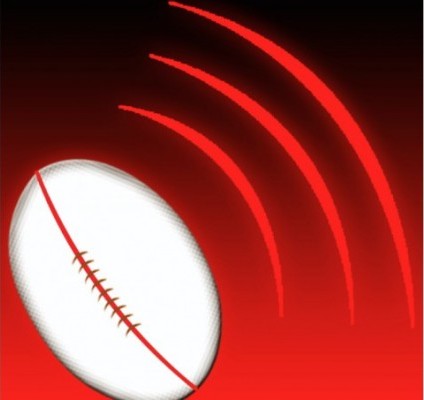Inside the Warrior Camp
Inside the Warrior Camp
Fallbrook has been wearing a target for the previous five years – the consequence of winning consecutive girls high school national championships – but in 2015, that mark seemed closer than usual. The Warriors lost a couple of tournament games in March, the SoCal league was providing inconsistent competition, and the team was chasing the development curve. And then Fallbrook entered DI nationals as the #3 seed, and the field grew cautiously optimistic that a new champion might be named.
“They were surprised,” Fallbrook co-coach Craig Pinnell said of the players’ reaction to their seed. “But they had a good attitude toward it. They were going to prove themselves on the field.”
Why is seed important? Unlike the boys championship, the girls' games take place over two, not three, days – so Saturday can be tough physically. And girls nationals has yet to field a true top eight, more like a top six, and very often the #1 and #2 seeds play blowout games in round one, meaning they aren’t as beat up for the semifinal round. Fallbrook drew Midwest runner-up #6 St. Joseph’s (Ohio) in the quarterfinals.
“St. Joe’s was an unknown to us,” Craig said. “They had played Divine Savior well at Midwests, but weren’t bringing their seniors to Pittsburgh – so we didn’t know what to expect. We had to block out the next game [against Danville] and focus, and it worked out quite well.”
Fallbrook won 41-0, but more importantly, the division realized that whatever struggles the SoCal side suffered during the build-up to the nationals, they overcame them, and then some. The top four teams won their quarterfinals, so #2 Danville, which had beaten Morris 62-5, squared up against #3 Fallbrook.
“They had their focus on Danville, wherever they ended up meeting them,” Craig said of the Lady Oaks, who had beaten Fallbrook during the Fullerton tournament. “Looking at Danville earlier in the day, we knew they had improved – from March to May is a long time to train. It was a game of who had improved more.”
“They only rise when they want to,” Fallbrook co-coach Marin Pinnell said. “When we were at the Fullerton tournament, it was a little, ‘another year, no big deal.’ Then we played Danville and lost our scrums, they were winning our rucks, and getting through our defensive line. They gave us things to work on, so at every practice we worked on our scrum endurance, our rucking, and taught the newer players about channels and not rushing up on defense.”
Even though Fallbrook recommitted after the early-season losses, the Pinnells weren’t 100% sure what team was going to take the field. Proponents of the player-centric model, the coaches had handed the game to the players, and it was up to them to make the right decisions and perform.
“There was that fluke try right in the beginning, but it didn’t seem to faze them at all,” Marin said. “After that, they kicked in. We were surprised, ‘Oh, look at them! They really want it and are fighting for it.”
After the Lady Oaks' game-opening score, Fallbrook began to wrest control of the match, and flanker Emma Workman’s try set the tone for the team.
“Emma sparked our forwards; she was part of the fuel,” Craig said of the senior. “She’s a jack in the box who doesn’t stop. We had her at flyhalf in the beginning because we had so many forwards, but it was clear that she just loved the ball. She changed the way the forwards think, and they’re more powerful.”
Workman paired nicely with strongside flanker Michel Navarro, the Forwards MVP, as well as No. 8 Alexi Eich. Hooker Destiny Arena did well to frustrate Danville in the scrums and stole a couple of put-ins. Kayla Canett, typically a center, stepped in at flyhalf and performed excellently. Her efforts earned her a tournament Backs MVP nod.
“We needed Kayla to organize the backline because we didn’t have Richelle [Stephens], and she filled those shoes well,” Craig said. “She was both a creator and a finisher. She had a good game against Danville, and Kent marked her in the final.”
As Danville started losing rucks and scrums, their shoulders sagged, but they continued to play hard. Only three years old, the Lady Oaks don't quite have the poise that Fallbrook has, and the players kept consulting the sideline for direction. Even though Danville did not fulfill its hopes for a final’s appearance, the team has improved its DI ranking every year, and is closing the gap.
“The final was played on Saturday against Danville, in my opinion,” Marin said of the 38-5 win. “Those were the two strongest teams in the tournament, and then Kent. It was fast-paced, they were making good decisions – it was a great game.”
Interestingly, the #3 and #4 seeded teams advanced to the final, while #1 Divine Savior and #2 Danville moved to the third-place game. Although the Wisconsin side has finished 3rd during the previous five years, the Lady Oaks forewent tradition and ground out a 22-0 victory.
Fallbrook controlled the final, defeating Washington’s Kent 41-0 for its fifth consecutive title. The assumption that the Warriors were vulnerable this year, it was all an illusion. But the team did have to rally to get into nationals form, and this year’s trophy is a credit to that effort.
“Every year we graduate seniors, and then the young ones come through and it becomes their year,” Craig said. “Because of what’s happened in the past, they feel like they have a duty to defend the title. They really feel it’s the pinnacle.”
Almost immediately after Fallbrook won the tournament, heads started turning toward next year. Five West Coast teams traveled to Pittsburgh and held up their end of the bargain – each (except Fallbrook) improved on last year’s ranking and committed to the $35,000 it takes to fly a team across the country. They’re taking nationals seriously, and they deserve the reward.










